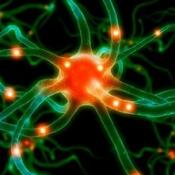 Many people have problems with daily life that begin in the brain. There are many ways this can occur. High levels of stress over time can cause problems with sleep, energy, and mood. A mild traumatic brain injury from a car accident or sports injury may cause difficulty with memory and attention span, and may induce depression. Exposure to chemicals such as those used in chemotherapy can cause problems with mental clarity, leading to a condition referred to as “chemo brain.” Problems with focus, concentration, and attention can be related to a variety of psychiatric diagnoses or sleep deprivation. Is taking medication always the answer?
Many people have problems with daily life that begin in the brain. There are many ways this can occur. High levels of stress over time can cause problems with sleep, energy, and mood. A mild traumatic brain injury from a car accident or sports injury may cause difficulty with memory and attention span, and may induce depression. Exposure to chemicals such as those used in chemotherapy can cause problems with mental clarity, leading to a condition referred to as “chemo brain.” Problems with focus, concentration, and attention can be related to a variety of psychiatric diagnoses or sleep deprivation. Is taking medication always the answer?
The Low Energy Neurofeedback System (LENS) was developed in the early 1990s by Len Ochs, PhD, a northern California psychologist. LENS was created as an alternative to medication for brain-based problems and is often used along with psychotherapy. LENS is a computer-based software program that is connected to an EEG box, which measures brainwaves. LENS directly stimulates biochemical changes that are thought to help the brain regulate itself.
The brain is both a biochemical and a bioelectrical system. Medication works on the chemical system, while LENS works on the electrical system. We might think of LENS helping the brain to reboot, like a computer that is no longer functioning optimally. LENS is just as safe and effective as traditional neurofeedback, and works much more quickly, saving both time and money.
Process of Treatment
The treatment itself consists of sitting quietly in a comfortable chair with your eyes gently closed, while the neurofeedback practitioner applies a tiny electrode with conductive paste to your scalp to both measure the brainwave activity and to deliver treatment. It is a completely painless and noninvasive procedure and most find it very relaxing.
Treatment consists of invisible radio frequency waves that are 4,000 times weaker than what your brain is exposed to each time you hold a cellular phone to your head. Not only is the feedback signal incredibly weak, but the length of exposure to it is extremely short. The duration of actual feedback during a typical LENS session is from one second to one minute per site on the head. It might seem impossible that a signal so weak could do anything at all, but it is effective because the brain can respond to the low-energy signal, whereas it would react and defend against a stronger one.
Neurofeedback clinicians have noticed a strong connection between excessive activity in the EEG, particularly in the slower brainwaves, and difficulties with mood, energy, focus, and mental clarity. Trauma and stress tend to cause EEG suppression, in which the brain protects itself from overload and seizure activity by reducing activity, which in turn limits functioning. In this case, the person doesn’t have the full range of emotions, thoughts and abilities they once had. LENS helps to normalize both excess activity and suppression in the EEG, and people feel better and are able to do more of what they want. Most people who receive LENS treatment report feeling more calm, relaxed, and in control of themselves.
Who Can Benefit from LENS?
We all know individuals who are rigid and inflexible, who are stuck in patterns of thinking and feeling that make them miserable, and yet they just can’t seem to change. Some people struggle because they seem to be perpetually stuck in overdrive — unable to wind down at the end of the day, or even to sit still for very long without excessive fidgeting, foot tapping, knuckle cracking, or frequent smoking breaks. Other people seem to be perpetually shut down emotionally and physically, with a sad, downcast appearance, low energy, and minimal interaction with others.
These patterns of thinking, feeling, and behaving are both psychological and physiological. Releasing suppression and reducing excess activity in the brain allows the person to begin to feel that change is possible, so they can begin to make new choices and form new habits. Psychotherapy combined with LENS neurofeedback treatment is optimal in these cases. LENS helps make the brain more flexible and therapy provides the support and coaching for how to make changes and develop new patterns in how we deal with our thoughts and emotions.
One woman I worked with, “Linda,” a middle-aged attorney, had suffered a mild traumatic brain injury ten years ago during a car accident. Her doctors told her, “this is as good as it’s going to get” when she complained of memory problems, headaches, insomnia, and the feeling that her brain “just didn’t work right anymore.” Since then, she was forced to give up her law practice because of these limitations. Her self-esteem and relationships suffered, leading to depression and a feeling of hopelessness about the future.
Linda began to respond to LENS within four or five sessions. Over the course of the four months I worked with her, I saw her twice weekly and each time we met, I noted and she reported improvements. She became giddy when she suddenly realized she could remember words that she had not been able to think of in over a decade without effort. As her limitations were eliminated, her mood brightened as well.
When I first met Linda she presented as someone who had given up and was just going through the motions, appearing disheveled, with dirty hair and stained and wrinkled clothing. She arrived smiling on the day of our final LENS session, her hair and nails freshly done, wearing a bright and flattering dress. As she left, she tearfully thanked me for “giving me my life back.” She had already announced to friends and family she was reopening her law practice and was open for new referrals.

The preceding article was solely written by the author named above. Any views and opinions expressed are not necessarily shared by GoodTherapy.org. Questions or concerns about the preceding article can be directed to the author or posted as a comment below.

 Rewiring How We Experience Feelings
Rewiring How We Experience Feelings Biofeedback for Treatment of Migraines and Stress
Biofeedback for Treatment of Migraines and Stress Rewiring Your Brain: When Genomes Meet Connectomes
Rewiring Your Brain: When Genomes Meet Connectomes

Please fill out all required fields to submit your message.
Invalid Email Address.
Please confirm that you are human.
Leave a Comment
By commenting you acknowledge acceptance of GoodTherapy.org's Terms and Conditions of Use.